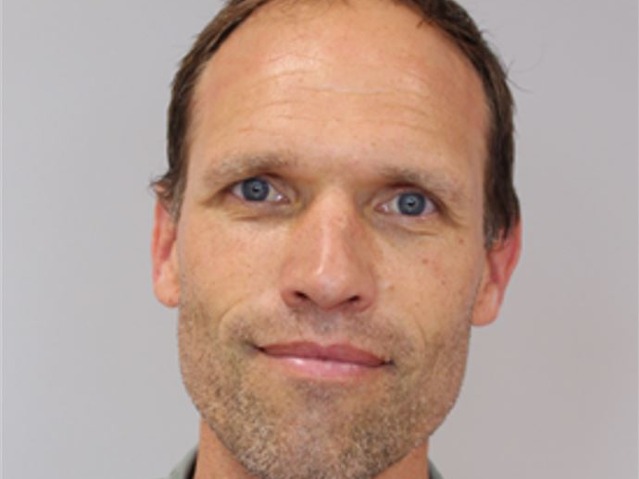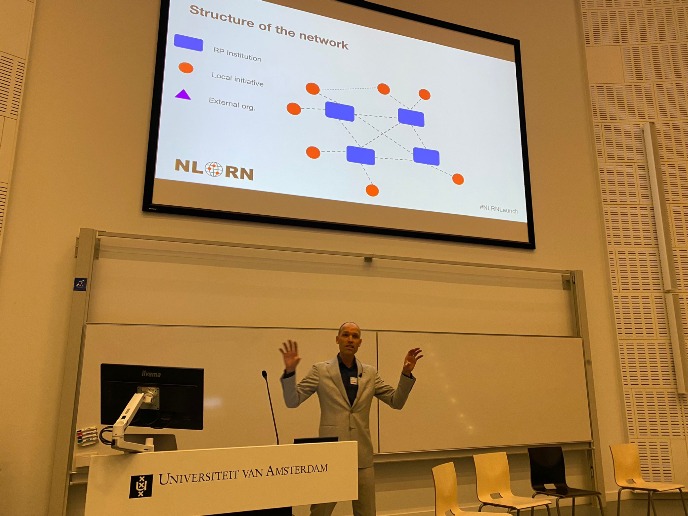Strengthening Scientific Integrity: An Interview with Michiel de Boer, Founder of the Dutch Reproducibility Network
| Date: | 24 June 2024 |
| Author: | Ana Ranitovic |

In an era where the credibility and reliability of scientific research are more crucial than ever, the Dutch Reproducibility Network (NLRN) stands at the forefront of promoting reproducibility and transparency across scholarly disciplines.
We talked to Michiel de Boer, Associate Professor of Epidemiology at the University Medical Center Groningen (UMCG) and co-founder of the NLRN. Michiel shares the motivations behind establishing the NLRN, the critical importance of reproducibility in research, the challenges researchers face, and the role of open science in fostering a culture of transparency and trust in the scientific community. His perspectives offer valuable guidance for researchers at all stages of their careers, particularly those navigating the evolving landscape of open science.
What motivated you to establish the Dutch Reproducibility Network and what are its primary goals and mission?
Our aim is to increase the quality and efficiency of research in the Netherlands by fostering reproducibility in all scholarly disciplines. This means that we aim to coordinate, support and strengthen initiatives on transparency and reproducibility of scholarly research. We work to realize these aims by setting up a network, organizing activities such as meet-ups, developing and disseminating training materials and standards of practice and by coordinating efforts across the network.
The UG is one of the institutional members of our network which also spans all Dutch Open Science Communities as well as organizations such as SURF and DANS. We started setting up the network in 2021. At that time, the focus on reproducibility within the open science initiatives was limited, whereas on an international level, a growing number of reproducibility networks came into being. It therefore seemed timely to start an RN in the Netherlands.
Why is reproducibility so important in scientific research today?
Reproducibility is one of the cornerstones of scholarly research. All of us have been taught that others should be able to reproduce our research. Large scale replication studies have shown however, that for a large part of the studies we publish, it is impossible to reproduce methods, to repeat the studies, even after contacting the authors. This is problematic, because it limits the accountability, quality and trustworthiness of research. Furthermore, of the studies for which the methods can be reproduced, we see that across disciplines around 40-60% do not replicate in terms of the results that were published. This implies that some of our theories, or of the interventions we believe are effective, don’t meet our own standards.

Can you share a personal experience that has influenced your views on reproducibility in science?
I have always been interested in our research practices and methods and the question why we hold on to incorrect methods or sub-optimal practices, so I was immediately interested in this field when I first heard of it. Not much later, I realized that my own work was not very reproducible and that it is actually pretty hard to ensure that everything in your work is reproducible. However, we can start by taking small steps and that already will increase the quality of our research.
What made / makes your work difficult to reproduce?
Many things. Published procedures were not detailed enough and often not pre-registered, data and code not shared or even findable. My work is still far from perfect in these respects, but together with my colleagues we are increasingly moving in the right direction.
What are some of the biggest challenges researchers face when trying to ensure their work is reproducible?
That is a difficult question, you will probably get very different answers from different researchers. Something we hear from many researchers is that they don’t have the time to invest in working in a reproducible manner. Working reproducibly may involve pre-registering your protocol, including plans for data management and analysis, making your data and code FAIR (Findable, Accessible, Interoperable and Re-usable) and reporting your findings transparently. This means extra work, compared to only writing a paper or monograph.
However, many researchers do not realize that it will also save time, because this way of working greatly facilitates reproducing your own work or tracing back steps, which is something we usually have to do in the research process. It is good to know that there are user-friendly platforms, such as the Open Science Framework, that support researchers in adopting reproducible workflows in their research. Hands-on training and support is provided by the digital competence centers (DCCs) and Open Science Communities (OSCs). We do hear though that researchers do not always seem to find their way to these support services and communities.
How can the UG and UMCG (better) support researchers to overcome these challenges?
I think the UG could especially put effort in bringing researchers, support staff and infrastructure together. This is also one of the focus areas that NLRN aims to work on in the coming years. We would like to set up pilots within participating institutions to explore what works and share best practices within the NLRN. The UG could be one of the frontrunners in bringing this further. Additionally, the UG could make more explicit in their policies how open science practices are recognized and rewarded, and I see that as the next important question.
(How) can open science and ‘Rewards and Recognition’ programmes help foster Reproducibility?
Recognition and rewards are crucial in fostering reproducibility. As mentioned before, working reproducibly takes more time, especially when learning how to. I think it is quite feasible to recognize and reward this, e.g. by recognizing ‘other’ research outputs, such as pre-registration protocols, FAIR datasets, code or open educational materials, in addition to the traditional outputs (mainly publications and grants). This asks for a different perspective on the quality of research and education. A first step for the UG could be to withdraw from the Times Higher Education ranking, like the University of Utrecht recently did.
What advice would you give to early-career researchers on incorporating reproducibility into their research practices?
Start working reproducibly from the start of your project; the sooner you learn how to do it, the easier it is and the more you will gain from it. Hook up with the OSC Groningen for support from peers; very helpful and fun. In addition, ask for help from your DCC when you're stuck. Finally, don’t be discouraged when your supervisors can’t help you or even might discourage you to adopt reproducible workflows. Once they see what reproducible workflows can bring, they will usually come around!
Useful links:
UMCG Digital Competence Centre
About the author
Ana Ranitovic is Chief of the UG Open Science Program


